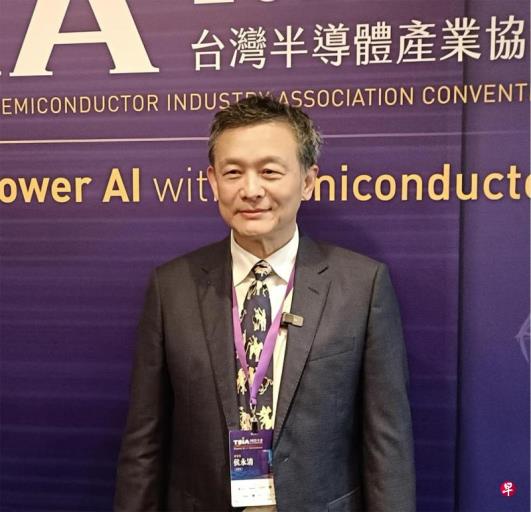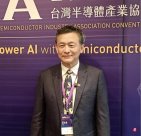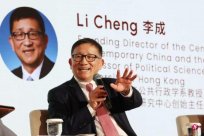
Hou Yongqing, the new chairman of the Taiwan Semiconductor Industry Association (TSIA), said that due to the uncertainty of economic ease of economic ease, Taiwan's semiconductor output value is estimated to be reduced by 12%, but after the Ming Dynasty, it is expected to drive growth by artificial intelligence (AI).He also evaluated that the ban on the sales of AI chips (also known as chips) in the United States to sell in mainland China has a small impact on Taiwan's short -term and controllable in the short term.
TSIA on Friday (October 27) Hou Yongqing, Hou Yongqing, who is also a senior deputy general manager of TSMC Eurasian business and technical research. At the end of March this year, he took over the chairman of the chairman of TSMC Liu Deyin.As the founder of TSMC Zhang Zhongmou and the current president Wei Zhe family have also been the chairman, Hou Yongqing has been regarded by the industry as a popular successor in TSMC.
Hou Yongqing said in the opening speech that Taiwan's semiconductor output value maintained the global manufacturing first, packaging test first, and integrated circuit (IC).S $ 100 million), an increase of 18.5%over the previous year.
However, this year's economic slowdown, weak consumption demand, and uncertain prospects. It is estimated that Taiwan's semiconductor output value this year has fallen to NT $ 4.25 trillion (about S $ 179.5 billion), a annual decrease of about 12%.But he believes that he will continue to thrive in the future.
He pointed out that 2023 is the first year of AI and is an opportunity for the next growth of the semiconductor industry.In response to the artificial intelligence generation content (AIGC) brought by the ChatGPT boom, it will be omnipotent in future life.In the development of AI, the great progress of the innovation and computing power of semiconductors plays a key role.The former chairman of TSIA Lu Chaoqun has also described that AI and semiconductor bless each other, such as Yi Tian Sword and Dragon Sword, which will cause great changes to the world.
The United States expanded AI chips to the mainland, Russia and Iranian countries on October 17, and immediately took effect without a buffer period at all.Hou Yongqing evaluated in a joint media interview that at present, AI chips account for the low proportion of Taiwan's semiconductor output value, so the short -term impact is less and controlled, but it still needs to pay attention to subsequent development.
Hou Yongqing also mentioned in his speech that Taiwan's semiconductor industry is facing global layout and transformation. It requires the government to provide policy support at the level of accelerating the development of new energy and attracting overseas semiconductor talents to respond to the unstable and crisis of power supply.
According to the special information of the TSIA annual magazine, 290,000 people in Taiwan were engaged in the semiconductor industry in 2021, and in 2022, it still needed to add 56,000 manpower.However, due to the severe childization, college graduates from science and engineering decreased from 157,000 in 2004 to 92,000 in 2020, a large decrease of 41%.In the next 10 to 15 years, the serious supply of science and engineering talents will be in short supply, which will affect Taiwan's leading advantage and economic development.
Therefore, Hou Yongqing called on the government to encourage more young people to study science and engineering and join the semiconductor industry. At the same time, it provides a policy of attracting talents to encourage overseas talents to go to Taiwan to school, employment and settlement.
This annual meeting also invites many experts from technology companies Microsoft, Semiconductor Plant MediaTek, and TSMC to discuss the opportunity of the sustainable growth of Taiwan's semiconductor industry for the theme of generating artificial intelligence and semiconductors.



